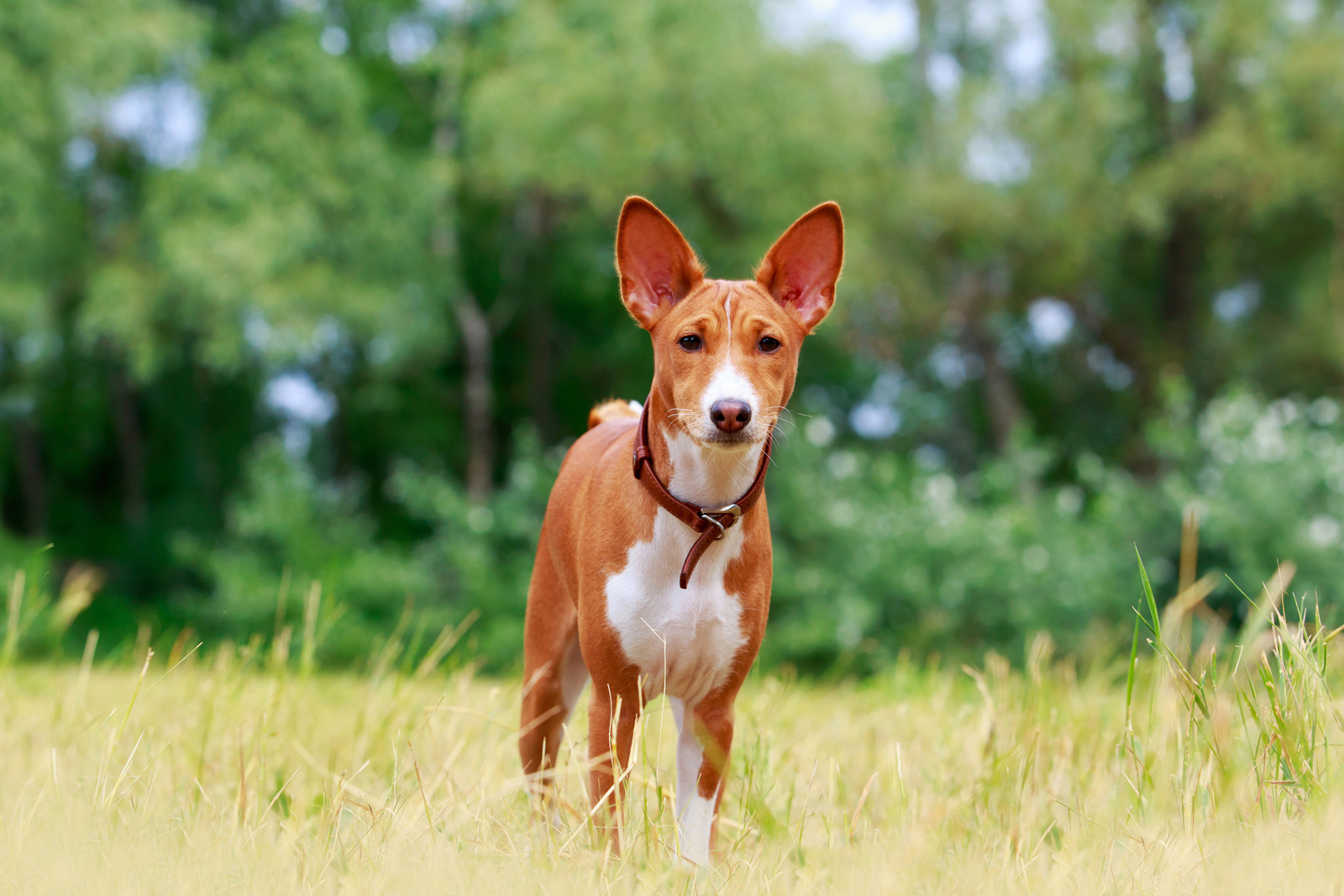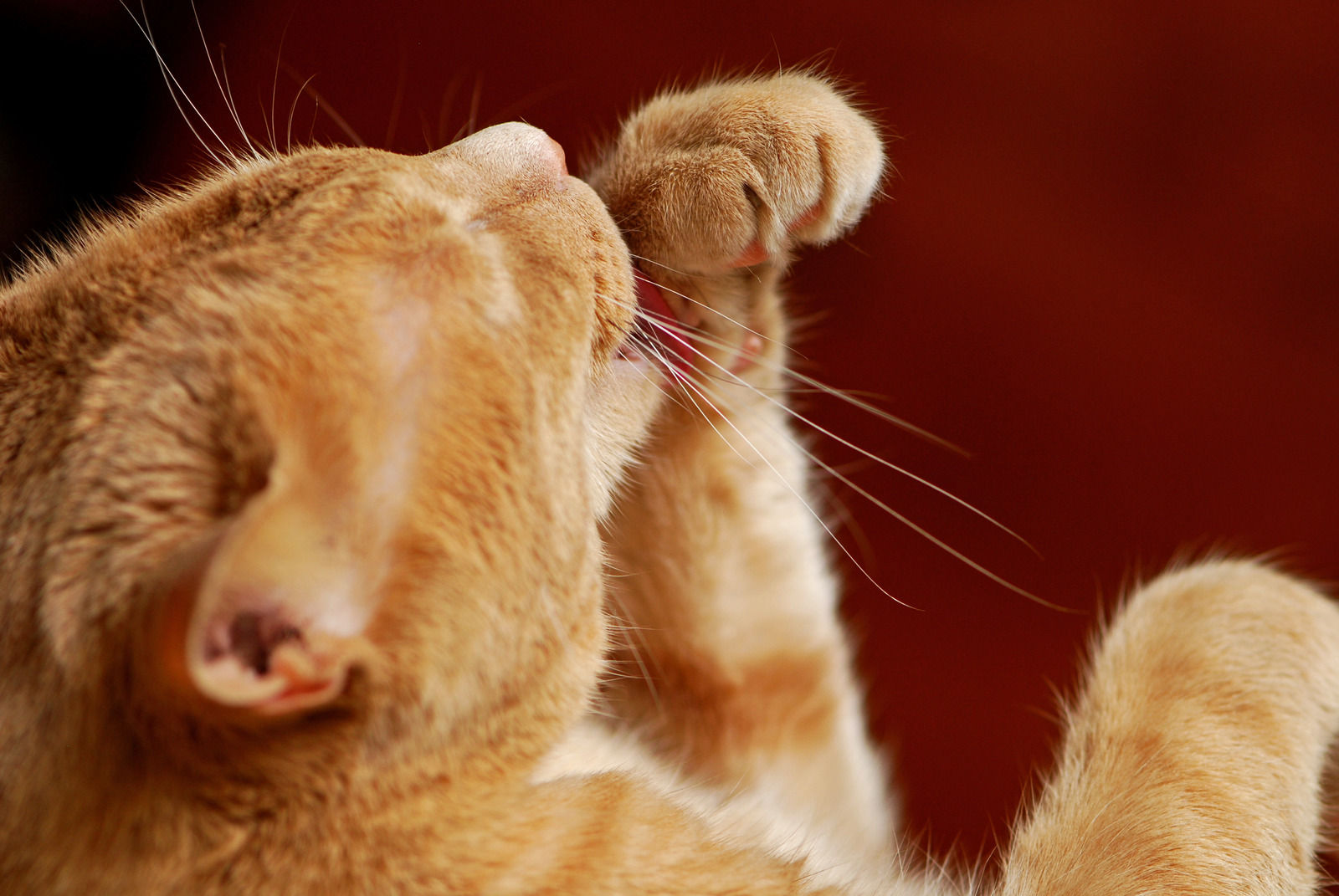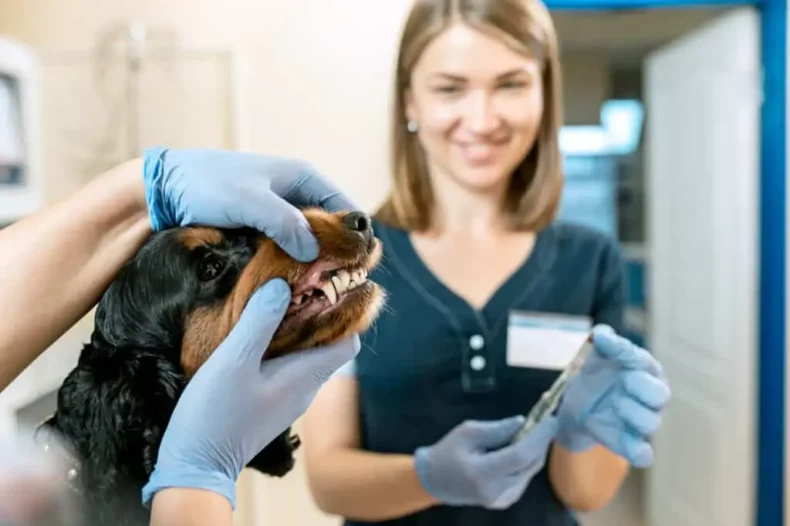
Does your cat have skin problems? Causes, symptoms and treatments
Is your cat suffering from itching and do you see bald patches in her coat? Skin problems in cats are common, regardless of their age. Fortunately, the solution is often simple. In most cases, treatment, medication, or changes in diet and lifestyle can help. In this blog, we list the most common causes and what you can do about them!
What are the symptoms of skin problems in cats?
A cat with skin problems will have a dull, thin, and flaky coat. Additionally, there are other symptoms of skin problems in cats. These are the most common symptoms of skin problems in cats:
- Excessive licking and grooming
- Crusts on the back
- Bald patches
- Wounds
- Scratching and biting
- Itching
- Bumps
- Swollen, inflamed skin
- Ear problems (scratching and shaking)
What causes skin disease in my cat?
The most common causes of poor skin or coat condition in your cat are: atopy, fleas, nutrition, contact allergies, autoimmune diseases, fungal infections, and stress:
1. Atopy
The most common type of allergy in cats is atopy. Just like people, a cat can be allergic to grass or tree pollens. Depending on the type, there is usually seasonal itching. House dust mites and environmental mites can also cause atopy in cats. Other animal species such as canaries, cats, dogs, or rabbits can also be a cause.
How to recognize? Atopy is characterized by itching all over the body. Often, miliaire dermatitis occurs, and you can find crusts on the back.
2. Flea Allergy
When a cat is bitten by a flea, the saliva in the skin causes itching. This applies to every cat, but for an animal with a flea allergy, the symptoms and itching are more severe.
How to recognize? Red spots and crusts develop on the lower back. The itching can spread all over the body, mainly the belly and groin.
3. Food Allergy
In a food allergy, a cat is hypersensitive to an ingredient in the diet. It is usually an allergy to a protein source, which does not mean that a cat is allergic to proteins. A cat can be allergic to a specific protein source, for example, beef proteins, chicken proteins, pork proteins, or other animal species.
How to recognize? Cats with food allergies often have itching all over the body or locally. Additionally, a greasy and less fresh-smelling coat is not abnormal. Skin infections or stomach and intestinal problems can also occur. The treatment for a food allergy is hypoallergenic food. Supportive therapies such as shampoos or fish oils can help with this.
Just like people with a nut allergy, one nut can have serious consequences in case of a food allergy. The quantity ingested does not matter in the case of a food allergy. Even once a week, a snack containing an ingredient to which the dog or cat is allergic can cause serious issues.
4. Contact Allergy
With contact allergy, your cat’s immune system reacts hypersensitive to substances in the environment after contact with the skin. Your cat may develop rashes and itching after contact with perfume, soap, grass, cleaning agents, plastic, or pesticides.
5. Stress
Just as we bite our nails when we are nervous, a cat with stress may excessively groom herself. Have you recently moved, do you have frequent unfamiliar visitors, or do you have new housemates such as a child, dog, or other cat? All these factors can quickly upset cats, resulting in nervousness and skin problems. Stress grooming in cats is mainly characterized by licking the belly and symmetrically licking the flanks and/or hind legs.

6. Autoimmune Diseases
In an autoimmune condition, the cat’s immune system attacks cells, proteins, or other structures. This disrupts the immune system, and it functions less effectively.
7. Fungal Infections
A cat can also develop skin problems due to a fungus, also known as ringworm.
How to recognize? Does your cat have bald, flaky spots? Unlike the previously mentioned skin conditions, a fungal infection does not cause itching.
What can I do if my cat has a skin condition?
Go to your veterinarian. They will thoroughly examine your cat’s skin, ears, and nails. They will also delve into your cat’s medical history. Your vet will ask questions about other animals in your home and your little pet’s diet to determine the right treatment and prevent further infections or chronic problems.
Why is nutrition important for cats with poor skin?
Healthy cat food prevents skin problems and keeps your cat’s coat full and shiny. It also prevents your cat from developing food allergies and
ensures she has sufficient resistance against pests such as fleas, ticks, or mites. Finding the best food for your cat challenging? We are happy to help you further!





 Yummy! Cookies!
Yummy! Cookies!